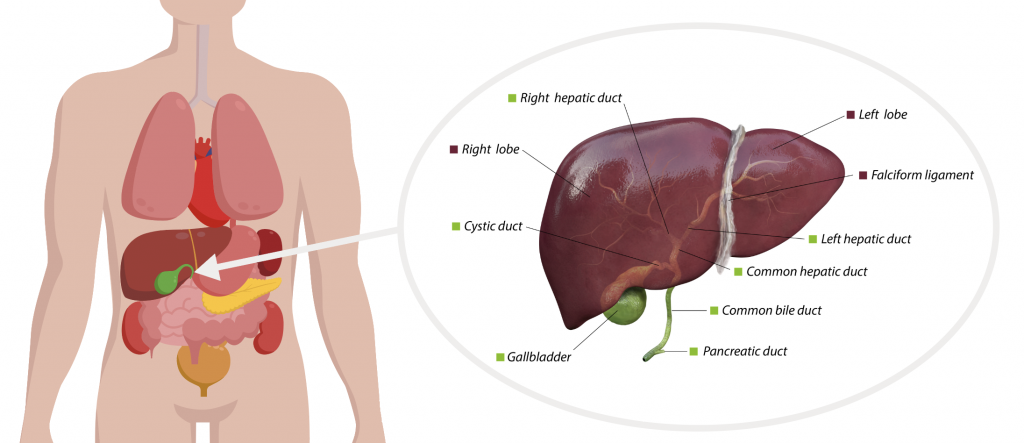- srushtigastro@gmail.com
- +91- 8073380392
GALLBLADDER CANCER

Gallbladder cancer is a rare but serious malignancy that develops in the tissues of the gallbladder, a small organ located beneath the liver. This type of cancer often presents challenges due to its late detection and aggressive nature. Understanding the benefits of early diagnosis, effective treatment, and supportive care is crucial in managing gallbladder cancer and improving outcomes for patients.
Early Detection Improves Prognosis: Detecting gallbladder cancer in its early stages offers the best chance for successful treatment and improved prognosis. Regular health check-ups, including imaging tests and blood work, can aid in early detection, allowing for timely intervention and better outcomes.
Multimodal Treatment Approaches: Gallbladder cancer treatment typically involves a combination of surgery, chemotherapy, radiation therapy, and targeted therapy. Multimodal treatment approaches tailored to the individual patient’s condition and stage of cancer can optimize outcomes and prolong survival.
Enhanced Quality of Life: Managing symptoms and side effects associated with gallbladder cancer and its treatment can significantly improve a patient’s quality of life. Pain management, nutritional support, and psychological counseling are essential components of supportive care that address the physical, emotional, and social needs of patients and their families.
Prevention of Complications: Prompt diagnosis and treatment of gallbladder cancer help prevent potential complications such as tumor spread (metastasis), bile duct obstruction, jaundice, liver failure, and nutritional deficiencies. Early intervention reduces the risk of severe complications and enhances overall well-being.
Clinical Trials and Research Advances: Participation in clinical trials and research studies can provide access to innovative treatment options and contribute to advancements in the understanding and management of gallbladder cancer. Patients may benefit from novel therapies and interventions aimed at improving outcomes and prolonging survival.
Supportive Care Services: Comprehensive supportive care services, including pain management, nutritional counseling, palliative care, and hospice care, play a crucial role in managing gallbladder cancer and optimizing quality of life. These services focus on symptom control, pain relief, and holistic support for patients and their families throughout the treatment process.
Empowerment Through Education and Advocacy: Increasing awareness about gallbladder cancer risk factors, symptoms, and screening guidelines empowers individuals to take proactive steps in their healthcare. Advocacy efforts aimed at promoting research funding, policy initiatives, and patient support networks contribute to improved outcomes and enhanced quality of life for those affected by gallbladder cancer.
In summary, early detection, multimodal treatment approaches, comprehensive supportive care services, participation in clinical trials, and advocacy efforts are essential in managing gallbladder cancer effectively. By addressing the disease comprehensively and holistically, patients can improve their overall health outcomes and quality of life.
Looking for the best Gallbladder Cancer Treatment in HSR Layout? Contact us today.
Empowering assistance, right when it matters. We’re here to lend a hand whenever you need it.

Call : +91- 8073380392
srushtigastro@gmail.com
Srushti Gastro & liver Clinic 186, 165, 9th Main Rd, Sector 6, HSR Layout, Bengaluru, Karnataka 560102